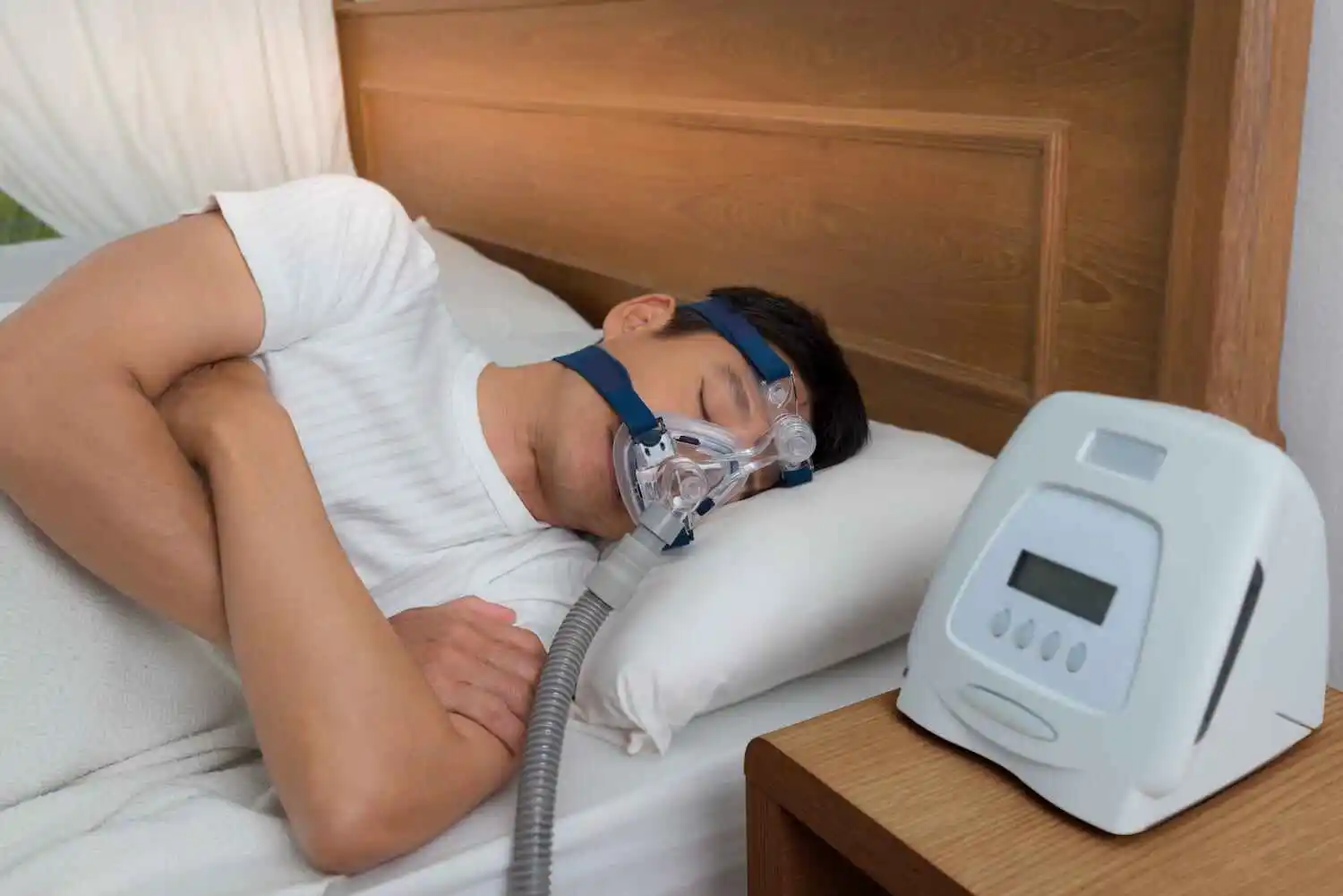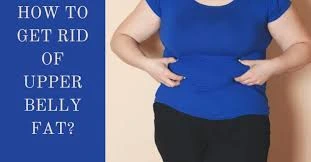How Much weight To Lose To Get Off CPAP?
Overview
Losing weight might significantly improve a person’s health prospects, but it might not completely resolve an apnea problem. Weight loss may not provide complete symptom alleviation for people with apnea caused by anatomical problems, such as an anomaly in the mouth, throat, or other breathing system structures.
Maintaining a healthy weight, however, will significantly lower the chance of acquiring other health issues and is always preferable to fighting obesity. Patients frequently report improvements in their joints, blood pressure, and general well-being when they seek a healthier body size and lifestyle.
When it comes to treating sleep apnea, a typical question among patients is how much weight they need to lose to stop using CPAP. This highlights a common objective for people who want to manage their disease more naturally. There aren’t many reasons not to pursue weight loss even if it doesn’t help with sleep apnea.
It is possible to greatly alleviate the symptoms of sleep apnea by losing 5–10% of your body weight. However, each person has a different weight loss and needs to stop using CPAP. Other variables, such as neck circumference and general health, also come into play. It’s crucial to speak with your physician for specific suggestions and to find out if stopping CPAP therapy is safe for you.
How much weight loss is necessary for reducing the symptoms of sleep apnea?
It is currently advised that patients reduce their body weight by just 10% to 15% to get symptom and apnea episode improvement. The neck and airway play a critical role in sleep apnea, especially OSA (Obstructive Sleep Apnea), especially during the night when relaxed muscles can cause an airway to constrict.
Weight loss and reduced neck size can greatly increase airway patency, reducing symptoms. Notably, a wide variety of people can have sleep apnea, and each person will react differently to treatment. Poor sleep quality can lead to weight increase for certain people, worsening sleep apnea.
Putting into perspective Weight Loss: A 6-Month Plan
Whilst 10% of body weight may seem like a lot, it is completely feasible to drop this much in less than six months safely and healthfully! In the United States, a person’s weight and height are compared to determine their obesity status. person, to be classified as obese, a person 5′ 11″ would need to weigh at least 210 pounds. losing between 22 and 32 pounds (15-20%) may help with apnea symptoms, especially those associated with OSA (Obstructive Sleep Apnea).
Because a wider neck can narrow the airway and make night time breathing more difficult, it’s vital to remember that losing weight can also significantly reduce the neck size and alleviate the symptoms of sleep apnea. This allows for individualized therapy and the recording of any weight gain or loss during treatment.
Effects of CPAP Therapy on Weight Loss and Sleep Apnea Treatment
Patients who are currently receiving treatment for sleep apnea with a CPAP machine might be curious about how this therapy will affect their efforts to lose weight. Understanding how the neck and upper airway retain open breathing channels during the night is essential for controlling sleep apnea, especially OSA (Obstructive Sleep Apnea). Hormonal imbalances associated with sleep apnea or disturbed sleep patterns may cause weight gain in certain patients.
Easy-to-complete patient forms that enable us to better understand each patient’s unique issues and treatment progress assist in optimizing the process for patients. These forms are crucial for tailoring sleep apnea patient care since they allow us to successfully meet each patient’s needs and track any changes that take place throughout therapy.
Are You Gaining Weight Because of Your CPAP?
A small percentage of patients may gain weight due to using a CPAP, according to studies examining the complex relationship between weight and sleep apnea. This could be because the treatment lowers hormone levels. According to some ideas, weight fluctuations may also be caused by energy expenditure from less breathing effort, which means the body burns fewer calories while you sleep.
How to Treat Sleep Anesthesia to Reduce Weight?
It is not advised to stop CPAP treatment without a new strategy in place to handle any lingering symptoms and health issues, even though the machine may be connected to an increase in body size. Directly treating sleep apnea can enhance mental well-being, energy levels, and sleep quality, all of which boost the effectiveness of weight loss strategies.
In addition to reducing the chance of weight gain, treating sleep apnea, also known as OSA (Obstructive Sleep Apnea), is essential for addressing general health problems, such as those involving the ENT (Ear, Nose, and Throat). It is advised to consult a specialist who may retest for apnea or assess the case to validate the patient’s medical needs and requirements, even if symptoms have been alleviated by CPAP therapy or weight loss.
To help with such, the facility quickly collects the required information by using reduced patient forms. Additionally, patients and those interested in learning more about sleep apnea, its consequences, and management techniques will find many materials on our education blog. For people who want to learn more about their condition and how to live a healthier lifestyle, this site is a great resource. It’s especially helpful for people who are worried about controlling their body fat in connection to sleep difficulties.
What Happens When You Stop Using a CPAP?
Patients who wish to sleep freely without a mask have other options, even though CPAP treatment has long been a popular treatment for obstructive sleep apnea. It is not unexpected that more people are searching for alternatives to the CPAP machine given the prevalence of problems like infections, dry mouth, lifestyle limitations, and skin irritation.
Our Sleep Cycle Team is committed to helping patients who are searching for innovative ways to manage their sleep apnea. They use the most recent developments in therapy to provide long-term strategies that may be integrated into everyday life.
As part of the medical services, we address sleep apnea as well as associated conditions like throat, nose, and ear health to fully comprehend each patient’s condition. Our patient education materials are easily accessible and offer useful details on a range of treatment choices and lifestyle adjustments. Additionally, we expedite the procedure by utilizing patient forms that are conveniently accessible, guaranteeing a seamless and effective experience for all individuals who seek our assistance.
If you have sleep apnea, your doctor may recommend a continuous positive airway pressure (CPAP) machine, which uses pressure to keep your airways open while you sleep so you don’t stop breathing periodically.
A weight loss program might help you regulate the symptoms of sleep apnea if you are overweight or obese. Until your sleep apnea goes away, you can use a combination of CPAP therapy and weight loss, as the two methods are more effective when used in tandem than when used separately.
Oral Appliance Therapy
Using a holistic mouth guard instead of intrusive CPAP devices, our Sleep Cycle Center team specializes in treating apnea using oral devices. By realigning the jaw, decreasing the number of episodes, and assisting patients in obtaining higher-quality sleep, this cozy, wireless, and mask-free substitute alleviates the symptoms of apnea.
This method has been shown to help people who are attempting to lose weight in addition to treating sleep apnea. The risk of weight gain linked to sleep disturbances can be decreased with better sleep quality. Additionally, because improved sleep frequently turns into a greater capacity for physical exercise, patients have indicated that regulating their sleep apnea has made their weight loss journey easier to manage. Given the strong connection between weight management and getting enough sleep, this is a huge benefit for general health.
Weight Management
As a comprehensive strategy for treating moderate medical issues and enhancing a patient’s approach to long-term, improved health, weight management therapy is strongly recommended. By providing specific guidance on how to achieve the desired weight loss for symptom relief and how to continue using the diet for continuing management, this sort of treatment puts the efforts into effect while educating a person concerning the ways they live. The approach emphasizes lifestyle modifications rather than band-aid solutions to prevent weight gain.
Although it discusses both the psychological and physical elements of weight management, this therapy can be especially helpful for those who are trying to lose weight. This therapy gives those who are having trouble losing weight specialized techniques to assist them lose weight.
The program is frequently used in conjunction with a more comprehensive treatment plan for ensuring comprehensive care, which may include suggestions to lessen sleep-related problems that may impact weight. But it’s crucial to remember that while learning is important, putting that information to use consistently is the actual problem.
Are CPAP machines harmful to weight loss?
Body weight and CPAP have a complicated relationship. Using a CPAP machine may cause some people to gain weight. However, there was no apparent weight increase among those who wore a CPAP for more than five hours every night.
It’s interesting to note that utilizing the CPAP caused weight loss in those with cardiovascular disease.
Weight Loss with CPAP Machines: A Difficult Connection
Numerous conditions that impact your breathing while you sleep are treated by CPAP equipment. After utilizing them, some people may experience weight gain. A lower percentage may lose weight.
Sleep apnea and other disorders can interfere with your breathing while you sleep, resulting in disturbed airflow that can cause cardiovascular problems, daytime exhaustion, and poor sleep quality.
To help maintain open airways during sleep, continuous positive airway pressure (CPAP) machines gently press air against a mask. With this therapy, many people see an instant relief in their symptoms.
CPAP may have an unanticipated impact on your weight, despite its benefits for sleep-breathing issues. Weight gain is more frequent with CPAP than weight reduction, but both are possible.
CPAP use and weight loss
It had initially hypothesized that CPAP and weight loss were related. CPAP machines allow users to be more active during the day since they increase oxygen flow and decrease daytime tiredness. You may be motivated to start a regular exercise regimen or do more when you feel more energized.
The relationship between CPAP and weight loss involves more than just increased activity. According to experts, using a CPAP machine could help people lose weight by better controlling their hunger. It seemed like a good theory. Increased activity and improved hunger control, two essential components of weight loss, may result from getting more sleep.
While not being developed particularly for weight loss, using a CPAP (Continuous Positive Airway Pressure) machine can indirectly aid in weight loss. Obstructive sleep apnea (OSA), a disorder in which the airway becomes obstructed while you sleep and causes breathing difficulties, is the main problem that CPAP therapy attempts to treat.
CPAP use and weight gain
Although using a continuous positive airway pressure (CPAP) machine for sleep apnea usually does not result in weight gain, there are a few indirect ways that weight changes may be related to CPAP machine use. An outline of the possible connections is provided below:
Increased Vitality and Quality of Sleep:
- Improved quality of sleep: The improvement of sleep quality for those with obstructive sleep apnea is one of the main advantages of using a CPAP machine. As a result, you might feel more rested and have more energy all day.
- Enhanced appetite and activity levels: People who receive better sleep tend to be more energetic, which may encourage them to engage in more physical activity. However, some people may experience an increase in appetite as a result of feeling more rested. Sleep can alter the balance of hormones like ghrelin and leptin that control hunger and satiety, which may lead to an increase in appetite if sleep quality significantly increases.
Improved Metabolism:
people that poor sleep (as caused by sleep apnea) can lead to alterations in metabolism, potentially promoting weight gain. By correcting the sleep apnea with CPAP therapy, these metabolic changes may be normalized, which could prevent further weight gain. Sleep apnea can contribute to metabolic disturbances, including insulin resistance, which can be linked to weight gain or difficulty losing weight.
Side Effects of CPAP Therapy:
- Comfort and Adjustment: If a CPAP mask is not appropriately set, some users may find that wearing it causes discomfort or annoyance that impairs their quality of sleep. This might make it harder to get a good night’s sleep, which could indirectly lead to weight-related problems.
- Bloating or water retention: When using CPAP, some patients have mild bloating or water retention, especially if they have a nasal congestion problem that gets worse with air pressure. Rarely, this may result in a feeling of weight increase, but this is usually transient and reversible.
Comorbid Conditions:
Obesity is one of the common comorbidities that people with sleep apnea experience, which can make weight loss more difficult. Some people may still struggle to control their weight if other underlying variables like nutrition, exercise, and lifestyle are not addressed. CPAP therapy helps manage sleep apnea, but it does not immediately cause weight loss.
- Stress and mood swings: Although CPAP enhances the quality of sleep, the transition to treatment can occasionally be upsetting or unpleasant. Rapid and sudden shifts in state of mind are known to as mood swings. You may have happiness or contentment one minute, followed by feelings of anger, sadness, or anxiety the next.
Indirect Impact on Loss of Weight:
- Encouragement to Modify Lifestyle: After beginning CPAP therapy, some people report improvements in their overall health and quality of sleep, which encourages them to adopt healthier lifestyle choices like eating better and exercising more. The result might ultimately assist with weight loss.
- Weight loss is not guaranteed: If they don’t additionally undertake dietary and activity modifications, some people may discover that their weight stays the same after beginning CPAP therapy, or they may even gain weight. Although CPAP is useful for treating the symptoms of sleep apnea, it often does not affect weight loss.
Obesity and the Cycle of Sleep Apnea:
Sleep apnea and obesity are frequently related: A large number of sleep apnea sufferers are obese or overweight. Although using CPAP alone may not always result in weight loss, it can frequently assist in alleviating the symptoms of sleep apnea. Weight gain is possible even if you are using CPAP to treat your sleep apnea and are not treating obesity or other risk factors (such as food and activity).
What role might CPAP machines have in weight gain?
You don’t necessarily need to accomplish more work just because you feel less exhausted during the day. Because CPAP takes your body out of an active stress state at night, it may accidentally lower your resting/sleeping energy usage.
The connection between weight and sleep apnea
Your weight and obstructive sleep apnoea, a sleep ailment that is frequently treated with CPAP, have a complicated relationship.
Being overweight can exacerbate sleep apnea. Sleep apnea can raise your risk of weight gain by increasing airway pressure, causing hormone swings, lowering activity levels, and increasing appetite. When you’re already worried about gaining weight, it’s normal to be cautious about using CPAP.
Gaining weight is not an excuse for skipping or stopping CPAP treatment. Obstructive sleep apnea can impair your heart’s overall function and is linked to serious health consequences.
Better long-term results and a decreased risk of stroke and cardiovascular events are associated with the use of CPAP for sleep apnoea.
With the advice of your doctor help, you can address any concerns you may have about weight gain and CPAP. Based on your overall weight goals and particular health concerns, they can design a weight management program for you.
Conclusion:
In conclusion, while CPAP therapy is not a direct cause of weight gain, the effects of CPAP on energy, metabolism, food control, and sleep quality may eventually affect weight. After beginning CPAP therapy, you may notice that you’re gaining weight.
This could be because of other lifestyle variables or because better sleep makes you more hungry. On the other hand, better sleep and better metabolic health may result from CPAP therapy, which may aid with weight management.
If weight gain or difficulty losing weight becomes a problem, it’s advisable to address other health-related issues, such as diet, and exercise, and even seek more specific advice from the doctor.
FAQs
At what weight reduction level Can CPAP be Stopped?
Just a 17-20% weight loss may outcome in 55% reduction in the severity of OSA in patients who are slightly obese. Sadly, losing weight can significantly improve OSA, but it seldom results in a full recovery, and many people with sleep apnea require further treatments.
Can I ever stop using my CPAP machine?
You might have to use it for the rest of your life, but sometimes you can stop using it if you have weight-related bariatric surgery or airway surgery to treat underlying causes. Other treatment options include auto-adjusting positive airway pressure (APAP) or nerve stimulation implants.
When I begin using a CPAP machine, will I lose weight?
As a lot of doctors and patients, we thought that using CPAP effectively could help people lose weight. However, the CPAP treatment group did not lose weight, which was against our premise. it is after beginning CPAP, some participants lost weight at first, but by the time they were followed up with a year later, they had gained it back.
When will I no longer require my CPAP?
Most people with obstructive sleep apnea who undergo CPAP therapy will need it for the rest of their lives. However, some people may no longer require CPAP after undergoing bariatric surgery or losing a significant amount of weight.
Does using a CPAP cause weight loss?
CPAP has mostly been associated with weight gain, however, there is a suggestion that it may also aid in weight loss for some individuals. Your doctor can help you discover a weight management program that works for you if you’re worried about weight gain from sleep apnea or using CPAP.
References
- Sleep Cycle Centers. (2024, November 19). How much weight to lose to get off CPAP? https://sleepcyclecenters.com/blog/how-much-weight-to-lose-to-get-off-cpap/
- Peters, B., MD. (2024, October 3). Do you have to use a CPAP machine forever? Verywell Health. https://www.verywellhealth.com/how-long-do-you-have-to-use-cpap-3015040
- Cherney, K. (2024, November 14). Can using a CPAP machine cause bloating? Healthline. https://www.healthline.com/health/sleep-apnea/cpap-bloating
- Edwards, J. M. (2024, March 19). How Much Does Weight Loss Help with Sleep Apnea? Healthline. https://www.healthline.com/health/sleep-apnea/sleep-apnea-weight-loss
- Pacheco, D., & Pacheco, D. (2024, April 30). How weight affects sleep apnea. Sleep Foundation. https://www.sleepfoundation.org/sleep-apnea/weight-loss-and-sleep-apnea
- Unknown. (n.d.). A patient’s guide Obstructive Sleep Apnoea and weight loss. https://royalpapworth.nhs.uk/application/files/9716/9349/2064/PI_21_Obstructive_Sleep_Apnoea_web.pdf
- Truby, H., Edwards, B. A., Day, K., O’Driscoll, D. M., Young, A., Ghazi, L., Bristow, C., Roem, K., Bonham, M. P., Murgia, C., Haines, T. P., & Hamilton, G. S. (2022). A 12-month weight loss intervention in adults with obstructive sleep apnoea: is timing important? A step wedge randomized trial. European Journal of Clinical Nutrition, 76(12), 1762–1769. https://doi.org/10.1038/s41430-022-01184-5
- Sleep Apnea & Your Weight | Dentist in Philadelphia, PA. (2022, August 9). Sleep Well Philadelphia. https://www.sleepwellphiladelphia.com/sleep-apnea/symptoms-your-health/sleep-apnea-your-weight/
- Glacialcontent. (2022, May 11). Does Losing Weight Help with Sleep Apnea? Suburban Otolaryngology. https://suboto.com/does-losing-weight-help-with-sleep-apnea/






